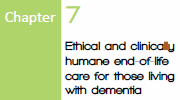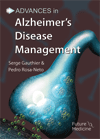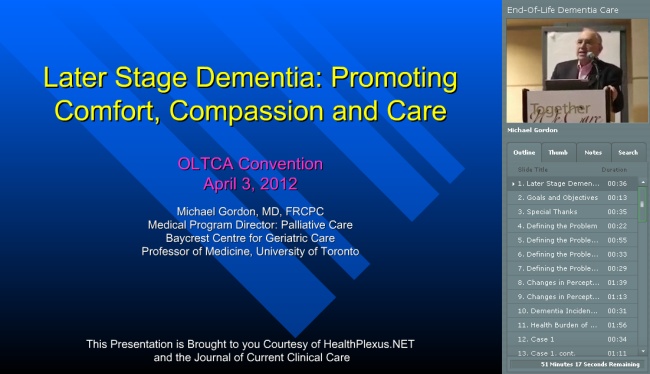As I was leaving for a bike ride I passed my wife, out for her morning walk; "I think it was a successful resuscitation!" She asked who I was talking about and I answered, "The three foxgloves", beautiful purple flowered plants I had planted days earlier that were wilting in the terrible summer heat. I "diagnosed" severe dehydration and therefore I provided large doses of water so that overnight the leaves filled out and the tall stem holding the gorgeous flowers were almost upright. It seemed to be a miraculous feat of plant care for someone who having been brought up in Brooklyn knew close to nothing about flowers or plants. Betty Smith's famous 1943 novel, A Tree Grows in Brooklyn, had little impact on my botanical knowledge or skill.
My wife had a good laugh and I biked away recalling my fond association with the foxglove that was important to me because of my medical studies in Scotland in the 1960s. During medical school what is now digoxin, a medication used for various forms of heart disease was provided as a biological preparation known as digitalis leaf, which meant its purity could not be as exactly determined compared to the more contemporary purified digoxin product. I was on an outing with classmates to the west of Scotland which culminated in a difficult uphill hike on the foothills of Ben Nevis part of the western Scottish mountains. As I stopped to catch my breath, Andrew Johnson, one of my more playful classmates, kneeled over me with a flowering plant in his hand and said laughingly in his Yorkshire accent, "here Michael, take a nibble of this, it will strengthen your heart," while waving a foxglove in front of me. I had never seen the plant but from then on, its appearance and medical importance was imprinted in my brain.
Digitalis was introduced into medical practice by William Withering (1741-1799) a great English medical botanist. Born in Wellington, Shropshire, England, he attended Edinburgh Medical School from 1762 to 1766. In 1776, he published, The botanical arrangement of all the vegetables naturally growing in Great Britain, an early and influential compendium of British Flora. The foxglove plant, digitalis purpurea, had been known for centuries as a folk remedy for the treatment of dropsy, or congestive heart failure, and other conditions. Withering in 1785 published his classic work, An account of the foxglove, and some of its medical uses: with practical remarks on dropsy, and other diseases. His observations changed the course of medicine and although digitalis is presently used less in current medical practice, I had frequently used it previously and observed its often dramatically life-saving effects.
My personal foray into gardening has occurred late in life but I have witnessed professionally the important therapeutic impact that raising plants can have on elderly individuals including those with cognitive impairment and cancer. There is a growing body of knowledge, studies and observations about the beneficial effect that plant care and gardening can have on those living with dementia. On a March 7, 2008 the website Caring Today (http://www.caringtoday.com/reduce-stress/garden-therapy) provided some interesting insights as to the therapeutic benefits of gardening and the care of plants by individuals living with dementia. "Gardening requires certain steps or sequences," says David B. Carr, MD, a geriatrician at Washington University in St. Louis. "Lots of patients, especially those with Alzheimer's or dementia, need guidance or mentoring because they can't go through all the steps alone, but they can do some of them."
Carr describes one of his male patients whose wife was the brains of their gardening operation. "She told him how deep to dig the hole, what to put in it and how to water it. This way of attacking the activity worked for them," he notes, "and they got to spend quality time together. "It has been my experience that those patients (with Alzheimer's or dementia), doing activities (gardening being one example) do better in the long haul and have a slower rate of decline than those who don't do anything," says Carr. "Gardening is one of the non-prescription interventions that have the ability to slow the rate of cognitive decline."
As reported on a BBC News website in September 20, 2011 by Huw Williams a BBC Scotland reporter an article appeared entitled, Garden therapy could bear fruit for dementia care (http://www.bbc.co.uk/news/uk-scotland-tayside-central-14979146). In the article it is noted that "Dementia patients across the country may be spending 24 hours a day locked in hospital wards—an unacceptable regime even for convicted prisoners. But now growing numbers of experts say access to the outdoors, and physical activity such as gardening, could transform life for patients with conditions such as Alzheimer's disease or other forms of dementia.
Annie Pollock, landscape designer from the Dementia Services Development Centre at Stirling University, says it, "should not be surprising that core skills from one's lifetime of gardening remain, even as the disease takes away other aspects of one's personality."
And she says," there is plenty of evidence of the benefits outdoor activity such as gardening can have for people….(with dementia)."
Also in the article a note of caution from Fiona Thackeray, from Trellis, a charity promoting therapeutic gardening which is organising a course on designing gardens for people with dementia. She cautions that unlocking the garden gate does not necessarily mean you can keep the drugs cabinet closed. She says: "We wouldn't argue that gardening is going to cure you, or take away all need for any other interventions. "But it can be a really powerful addition, or complementary therapy, to any drug regime." "It's a great physical activity so it's a good way to keep fit, or get fitter. Most people find it calms them down, it's a great stress reliever." Ms. Thackeray adds: "More and more we're seeing the importance of vitamin D. Although we don't have much sunlight in Scotland, if you're outdoors in the garden you're going to be boosting your vitamin D levels." And, she says, "the sense of smell is a really strong trigger for memory, so what better place than a garden, with all the scented flowers and herbs, for people with dementia? It can help them think back to their past, and bring back positive memories."
On a You Tube video the beneficial aspects of gardening is the focus of the story: Therapeutic gardening helps residents with dementia: Residents with dementia at the Norwood Crossing assisted living center participate in therapeutic gardening that helps them build confidence and a sense of community. The center raised enough money to open a new garden outside, which residents will be able to tend to daily. (http://www.youtube.com/watch?v=T_hvKZv4ViE)
The short-story writer O'Henry captured poignantly the life-affirming impact of what was believed to be a lingering vine leaf on a pneumonia-stricken woman in The Last Leaf. The patient's ultimate recovery is at the expense of the old painter who as his last heroic artistic effort painted the leaf on the wall facing the window to give the illusion of the still-living leaf, only to contract fatal pneumonia as the price paid.
On the palliative care unit where I work at Baycrest, there is an active plant group that with a recreation therapist and dedicated volunteers helps patients nurture their plants. One elderly gentleman with advanced malignancy had always raised his own vegetables. His plant project was to raise some beans while he was on the unit and the joy that he experienced watching his carefully tended blooms yield their produce was a testimony to the life-affirming power of plants living and thriving through our human efforts.
Gardening and the tending of plants is part of the spectrum of life-affirming activities that we can use in the care of the elderly especially those with dementia or those with end-stage illnesses such as malignant and non-malignant disease. To tend to a plant, watch it grow and produce its leaves, flowers or vegetables affirms for many that there is a meaning to life, even as one may realize that one's end is on the horizon or when may not realize exactly what life has in store because of cognitive impairment but anything that gives life meaning is a worthwhile endeavor.
This article first appeared in part in the August 7th, 2012 issue of the Canadian Jewish News.
 It is always amazing when one is working in the field of medicine to discover new additions that are useful and something that will change one's approach. That is one of the wonderful things about medicine; that there is so much room for creativity while maintaining the essence of good science and coupling it with humanity and care.
It is always amazing when one is working in the field of medicine to discover new additions that are useful and something that will change one's approach. That is one of the wonderful things about medicine; that there is so much room for creativity while maintaining the essence of good science and coupling it with humanity and care.

 It is always a pleasure to be able to discuss a new book to a receptive audience when I believe the book has something special to offer. When it comes to reviewing books outside the realm of medicine or the medical sciences, reviews often are reflective of the personal and aesthetic views of the reviewer. There are many books written for professional readers on the fringe of medical science that deal with non-clinical aspects of medicine and many that have translated important medical concepts to the lay audience and others in the form of memoirs and novels of the personal and historical type that add a great deal to the general wealth and richness of medicine and the associated medical sciences.
It is always a pleasure to be able to discuss a new book to a receptive audience when I believe the book has something special to offer. When it comes to reviewing books outside the realm of medicine or the medical sciences, reviews often are reflective of the personal and aesthetic views of the reviewer. There are many books written for professional readers on the fringe of medical science that deal with non-clinical aspects of medicine and many that have translated important medical concepts to the lay audience and others in the form of memoirs and novels of the personal and historical type that add a great deal to the general wealth and richness of medicine and the associated medical sciences.